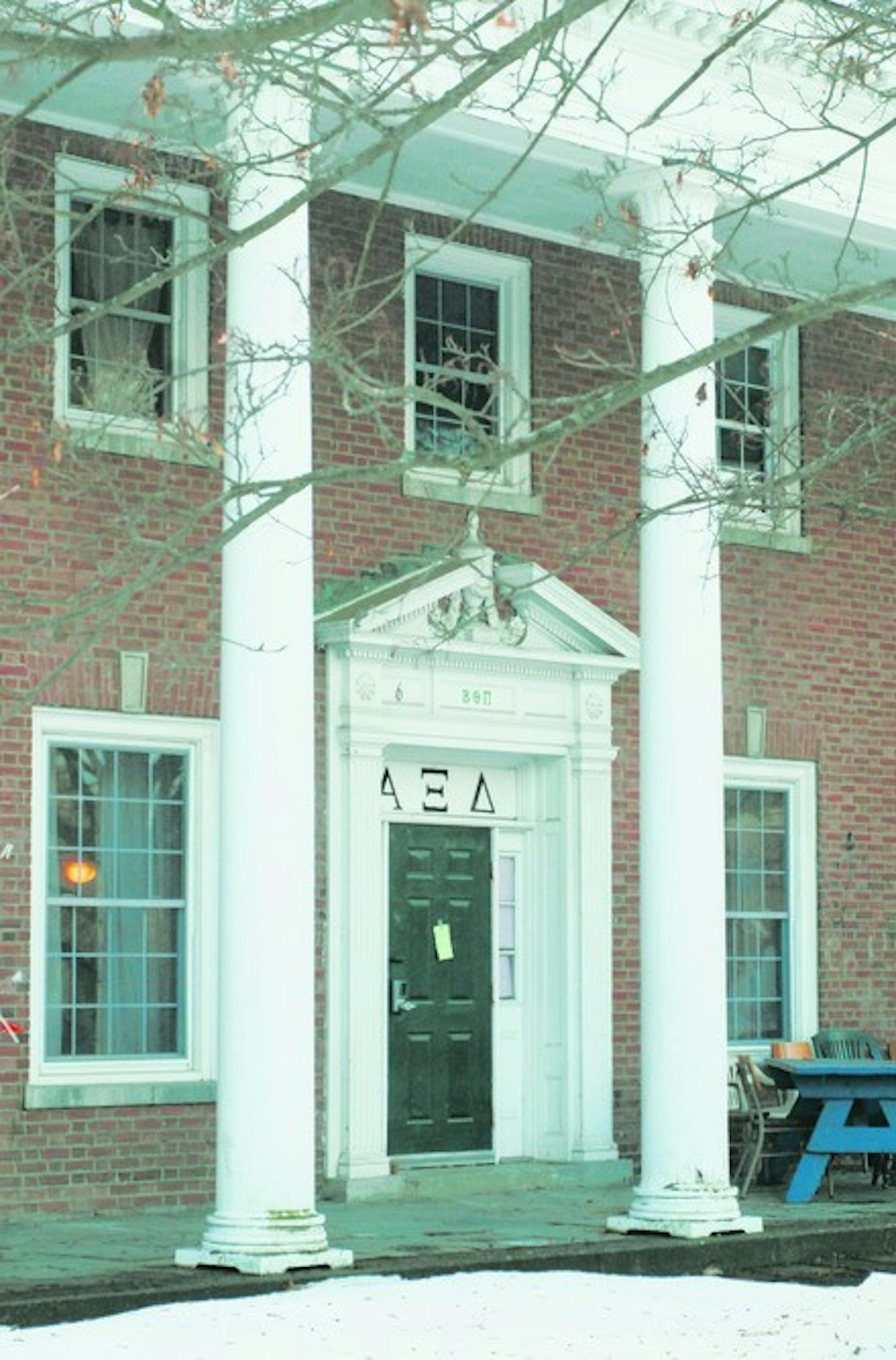Although both the College and the Beta national organization have not officially re-recognized the chapter, the interest group plans to recruit 20 to 25 interested sophomores, according to Tony Pastoors '10, a member of the group.
Though the fraternity was largely composed of athletes before its derecognition, the upperclassmen in the current Beta interest group have a wide range of interests, Pastoors said, and hope to recruit a diverse group of sophomores.
"We will not just be a football house -- we wanted to get rid of that stereotype right away," Pastoors said. "The 17 of us right now are primarily made up of athletes, but there are kids on the debate team and in the [Dartmouth Outing Club] and things like that. It's a wide, diverse look at the Dartmouth community and that's what we're looking for with the sophomores also."
Dartmouth's chapter of Beta, initially called Sigma Delta Pi fraternity, was founded in 1858 and became the Alpha Omega Chapter of Beta Theta Pi in 1889. For most of its tenure at the College, members were recognized for their community service efforts and national condemnation of racial discrimination.
"Beta was always considered one of those leading organizations," Scott Sipple '84, a member of the Dartmouth Beta Board of Trustees, said in a May interview with The Dartmouth. "It was always a house that was characterized by people who were viewed as leaders on campus."
In the 1990s, however, Beta faced accusations of misconduct and discrimination, which many Beta alumni claim was perpetuated by a small group of the fraternity's membership.
The house was derecognized on Dec. 6,1996, after a Coed Fraternity Sorority Council judiciary committee found the fraternity guilty of six violations of College and national fraternity policies. Violations included reading a racist poem degrading Native Americans during a fraternity meeting and violating the College's hazing policies.
Beta's alumni corporation maintained ownership of its physical plant, and leased the space to Alpha Xi Delta sorority for 10 years. Throughout this time, Beta board members had been working with the College to facilitate the fraternity's return to campus, Beta board member Dimitri Gerakaris '69 said in a May interview.
The juniors and seniors that compose the current Beta interest group were selected after meeting individually with alumni on the Beta board, Sipple said. A few of them are former members of other fraternities on campus, Pastoors said, such as Gamma Delta Chi and Chi Gamma Epsilon fraternities. These organizations have been notified of the students' decisions to depledge and join the Beta interest group.
Before the students can officially recruit sophomores, they must petition the Inter-Fraternity Council for sponsorship, Sipple said. The interest group meets the criteria for IFC recognition, he said, because its membership is larger than 25 percent of the smallest house on campus.
After applying for recognition and participating in fall recruitment, the group will earn colony status, a phase designed to allow the organization time to gain stability, according to Fouad Saleet, associate director of Coed, Fraternity and Sorority administration. Colony status should last no longer than two years, Saleet said.
"Once the interest group gets sponsorship [from the IFC], they can work at gathering more members, and then they will move into a colony status, meaning you do not have the full privileges of a coed, fraternity or sorority organization," Saleet said.
Restrictions include a mandatory "dry period," during which there can be no alcohol present on the fraternity's physical plant and the group cannot be involved in any events, either on or off campus, where alcohol will be served. Dean of Residential Life Martin Redman will set the length of the dry period, Saleet said.
Beta alumni will travel to campus on the weekend of Oct. 11-13, to assist with fall rush and recruitment.
"We've had a great response from our alumni, so we plan to have several dozen of them come up for rush," Sipple said. The rush activities will be part of a larger alumni weekend that will include a dinner at the house Friday evening and a golf outing Sunday morning, he added.
Members of AZD were displaced from the Beta house in June in preparation for the fraternity's return. AZD and Alpha Phi sorority are the only two Panhellenic sororities without physical plants. Two College-owned houses, located at 17 and 26 East Wheelock Street, will be renovated this year for the sororities' use and should be inhabitable by Fall 2009, according to Redman.
The facilities are currently apartment buildings for faculty and staff, Redman said. To become suitable for use by the two sororities, the buildings require renovations to create more bedrooms and bathrooms, as well as larger social spaces, he said.
In the meantime, Dartmouth's Office of Residential Life has provided both sororities with space in residential halls so the members can opt to live together, Saleet said. This fall, AZD members will live in Hitchcock residence hall while Alpha Phi members will live in the Gold Coast residence cluster, Redman said.
In addition to renovations on the two houses on East Wheelock Street, ORL is finishing renovations on several other Greek houses on campus, based on a facility audit process completed six years ago, according to Redman. ORL paid for the audit process, which assessed all of Dartmouth's Greek facilities, he said, including both the College-owned and privately-owned houses.
Construction on Delta Delta Delta sorority's physical plant, the last to be renovated, will begin in June 2009, Redman said. The project is expected to cost $1 million dollars, he said, which is higher than the $800,000 that the audit predicted each renovation would cost. Architects will have their first meeting to discuss the renovations in late October, Redman said.




